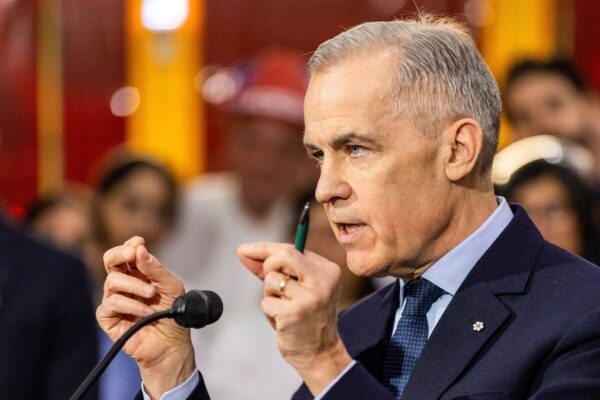Stocks End Mixed; Jobless Claims at Pandemic Low, Boeing Lifts Dow
Stocks ended mostly higher Thursday after jobless claims fell to a fresh pandemic low and core capital goods orders in the U.S. rose more than forecast.
The Dow Jones Industrial Average rose 141 points, or 0.41%, to close at 34,464 and the S&P 500 was up 0.12%. The Nasdaq ticked down 0.01%.
Giving the Dow a lift was Boeing (BA) – Get Report, which rose 3.9% after Airbus, the world’s biggest planemaker, boosted its near-term production targets amid the ongoing post-pandemic recovery in global airline passenger traffic.
Value shares, and those stocks that will benefit the most from the economy’s reopening, were leading the gains on Thursday. Tech stocks wavered.
Dissipating Fear, Too Much Cash, Elizabeth Warren, Software for Sale, Nvidia
The number of Americans filing for first-time unemployment benefits fell to 406,000 last week, a decrease that was sharper than economists expected. Jobless claims have fallen for four straight weeks.
Core capital goods orders, which exclude aircraft and military hardware, in the U.S. in April jumped 2.3%, rising the most in eight months, according to the Commerce Department. Total durable goods orders fell 1.3% from the month earlier.
Stocks also rose after The New York Times said President Joe Biden planned to propose a $6 trillion budget for fiscal 2022. The budget, according to the Times, would take the U.S. to its highest level of federal spending since World War II.
Stocks have been volatile over the past few weeks as the recovering U.S. economy brings with it concern about rising inflation and fears the Federal Reserve could pull back on its extraordinary support.
Many Fed officials this week have said they don’t feel it will be necessary to change course since rising price pressures likely will just be temporary.
Vice Chairman for Supervision Randal Quarles, however, said Wednesday that if the economy continues on its brisk recovery path there soon will come a time for the central bank to begin discussing slowing the pace of its monthly purchases of $120 billion in Treasury and mortgage-bonds.
“If my expectations about economic growth, employment and inflation over the coming months are borne out, and especially if they come in strong, it will become important to begin discussing our plans to adjust the pace of asset purchases at upcoming meetings,” Quarles said at a Brookings Institute event.
Data expected on Friday – the personal consumption expenditures index – could crystalize the recent remarks from central bank officials.
“With the market pretty much in a holding pattern this week, jitters around Fed speak continue to be front and center,” said Mike Loewengart, managing director of investment strategy at E-Trade.
“We’re heading in the right direction on the jobless claims front, but the slightly disappointing GDP and durable goods numbers could suggest that economic growth is progressing slower than some would have thought.
“Keep in mind there’s bound to be fits and starts when it comes to economic recovery. And if history is our guide, we’ve seen the market shrug off disappointing data before in favor of sights of more robust reopenings,” he added.
Ford (F) – Get Report finished 7.3% higher on Thursday after the car company, looking to take on Tesla in electrifying its fleet sooner rather than later, received an upgrade from analysts at RBC Capital, who say the stock is “still not overly expensive.”
Nvidia (NVDA) – Get Report slipped 1.2% Thursday despite a bullish forecast from the maker of gaming and data-center chips.
Earnings reports from Costco (COST) – Get Report and Salesforce.com (CRM) – Get Report are expected after the closing bell Thursday.
Boeing, Costco, Nvidia and Salesforce are holdings in Jim Cramer’s Action Alerts PLUS member club. Want to be alerted before Jim Cramer buys or sells the stocks? Learn more now.












 Bitcoin
Bitcoin  Ethereum
Ethereum  Tether
Tether  XRP
XRP  USDC
USDC  Solana
Solana  TRON
TRON  Figure Heloc
Figure Heloc  Lido Staked Ether
Lido Staked Ether